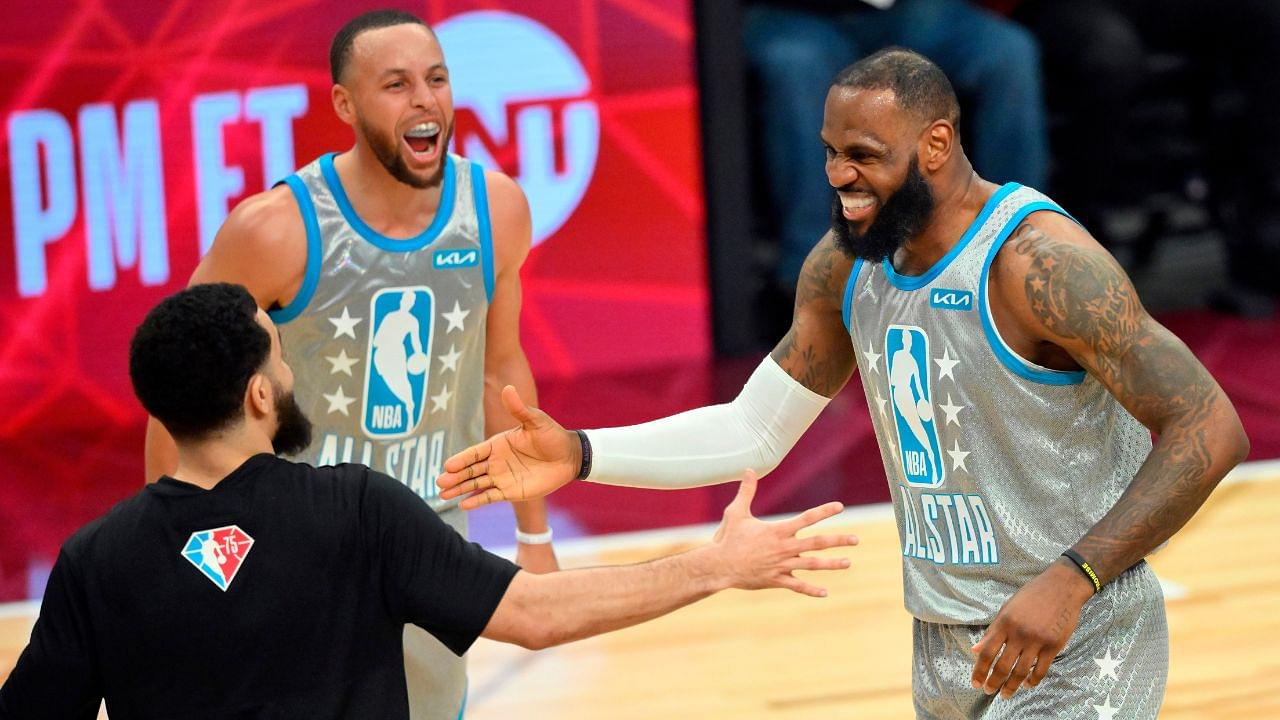The NBA All-Star weekend is one of the most anticipated events in the league every season. The weekend includes many now-famous mini-games and competitions that players participate in, such as the Slam Dunk competition, Skills Challenge, and the Three-Point Competition. However, the main attraction over the years has been the All-Star game, which pits the best of NBA’s talents in two teams, giving fans the rare opportunity of watching Conference rivals teaming up to win this exhibition game.
Advertisement
Since its inception in 1951, the All-Star game has long followed the format of pitting the best players of the Eastern and Western Conferences against each other. However, this format was abruptly dropped after six decades for a new format based on ‘captains’ choosing players for their teams. Here we will explore the history of how it all happened.
1951: All-Star Inception
The history of the All-Star game can be traced back to 1951, when the NBA’s then-publicity director, Haskell Cohen, helped create the annual weekend spectacle that fans all eagerly anticipate today. The NBA wanted to follow suit with MLB, which already hosted its own All-Star games and had gained wide popularity from the same.
After discussing this proposal with then-league commissioner Maurice Podoloff and Boston Celtics owner Walter Brown, the first All-Star game was held on March 2nd, 1951, in Boston Garden. The game drew around 10,094 fans in audience, with the Eastern Conference defeating the West 111-94.
Celtics legend Ed Macauley emerged as the first All-Star MVP with a game-high 20 points while limiting Minneapolis Lakers star George Mikan to only 4 field goals and 12 points. However, Macauley was only honored two years later during the 1953 All-Star Game, when the league decided to designate an MVP for each year’s game.
For over six decades, the subsequent All-Star games followed the same East-West format until the same was finally discarded for a new one in 2018.
2018: Discarding East vs West Format
The NBA discarded the East vs West format after almost six decades, in 2018. The league devised a revamped format, with two captains drafting for their teams from a pool of players voted as starters and reserves. The captains would be the All-Star starters from each conference receiving the highest fan votes in their conference and had to select players for their team without regard for conference affiliation. This system attempted to emulate an almost playground feel to the whole event, something that fans enjoyed very much.
The 2018 All-Star Game was the first to feature this format, with Stephen Curry and LeBron James fielding their All-Star teams as captains. Team LeBron eventually emerged as the winner of this game, defeating Team Stephen 148-145.
Since then, Team LeBron has remained a constant in the subsequent All-Star Games, while only Giannis Antetokounmpo and Kevin Durant have gotten the chance to form their respective teams as captains, among other players. This format continued until 2023 before the league reverted to the classic East vs West format later that year.
2024: Returning to the Roots
In October 2023, the NBA announced that the upcoming 2024 All-Star Game, which will be played on Feb 18, 2024, at Gainbridge Fieldhouse, Indianapolis, will feature the classic East vs West format. The league took this decision ahead of the 73rd All-Star Game to celebrate the deep roots of basketball in the state of Indiana. The voting process will remain the same, with 12 players selected from each conference.
NBA Commissioner Adam Silver announces the return of the classic East vs. West format for the 2024 NBA All-Star Game. pic.twitter.com/ingdASk5GJ
— NBA (@NBA) October 25, 2023
One of the major changes alongside this format is that the game will no longer have an untimed fourth quarter or conclude when one team reaches or surpasses the Final Target Score. The game will return to traditional 12-minute quarters, with both teams competing to win each quarter for a charitable organization of their choosing.
The All-Star starters from each conference receiving the highest votes will be named the captains of their respective conference teams. The game is expected to raise much anticipation and fervor as Indianapolis will host NBA All-Star for the first time since 1985.








